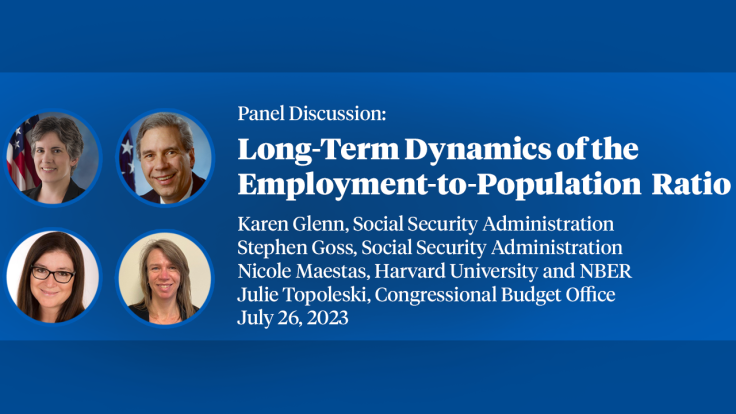The CPS is the U.S. Government's monthly survey of unemployment and labor force participation. The BLS maintains a CPS Home Page with a great deal of information about the survey and access to downloads of recent data. The CPS basic monthly files contain information on labor force status but do not contain the full income and demographic data contained in the March supplements, nor do they contain usual hours or wages except for the households in the outgoing rotation group.
A housing unit in the CPS is interviewed for four consecutive months and then dropped out of the sample for the next eight months and is brought back in the following four months. So, in any given month, one-eighth of the housing units are interviewed for the first month. When the system has been in operation for a full year, four of the eight rotation groups for any month will have been in the survey for the same month, one year ago. Matching information and Stata .do files from NBER Working Paper t0247 by B. Madrian and L. J. Lefgren are available for March-to-March Annual Demographic File matches but can be modified for use in matching CPS Basic Monthly Data. Technical Paper such as 66 and 63 contains more information about Design and Methodology.
To check ability to uncompress these files, download the small files compress.Z or compress.zip. They give an example of how to read in .Z and .zip ASCII files into SAS for UNIX without decompressing the files.
To download files in Internet Explorer, right click on them and select "Save Target As...". If the pdf documents appear to be all blank pages, get the latest Acrobat Reader at www.abobe.com.
All data files follow the naming convention cpsbYYMM where YY is year and MM is month. The 1976-1988 data documentation calls every group of six Characters a Word. To convert Words and Characters into plain characters multiply the number of previous Words by six and add the number of character positions within the designated Word. That will give the location of the first character of the variable of interest. For example, State is in Word 3, Characters 5-6. 2 previous words * 6 = 12 + 5 = 17 = the starting location of State.
The file layouts are the basically the same for the following periods: 1976-1988, 1989-1993, 1994-1997, and 1998-2004. SAS, SPSS, and Stata data definition statement files for 1989 on are available. Merge.sas gives an example of how to read in multiple months and years and merge them into a single datafile.
From 1976-1993 variables and record lengths can vary by record type as described in the documentation.
Weekly hours/earnings are not included in these files from 1976-1983. From 1976-1978, these variables are available in the May Extracts. From 1979 on, these variables are available in the Merged Outgoing Rotation Groups.
NOTE: Usually, the documentation from January applies to an entire year. Execptions are 1984-1985 and 1994-1995. The January 1984 documentation is used through to June 1985. The July 1985 documentation applies to the remainder of 1985. For 1994-1995, the January 1994 documentation is used through August 1995. The September 1995 documentation serves for the rest of the year.
Thanks to David Card at Berkeley for providing the 1989-1993
NBER internal Users can access the data from a UNIX shell at /home/data/cps-basic or on an NBER PC via Network Neighborhood --> NBER --> home --> data --> cps_basic
** Usually, the documentation from January applies to an entire year. Execptions are 1984-1985 and 1994-1995. The January 1984 documentation is used through to June 1985. The July 1985 documentation applies to the remainder of 1985. For 1994-1995, the January 1994 documentation is used through August 1995. The September 1995 documentation serves for the rest of the year.
Contact data@nber.org with questions, comments, or suggestions.


